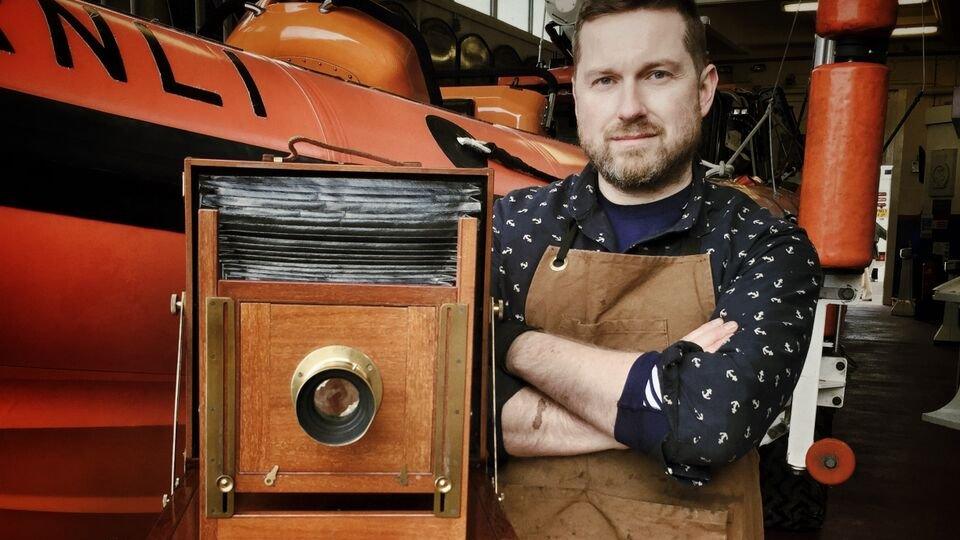Forgotten cache of RNLI pictures 'preserved for posterity'
- Published
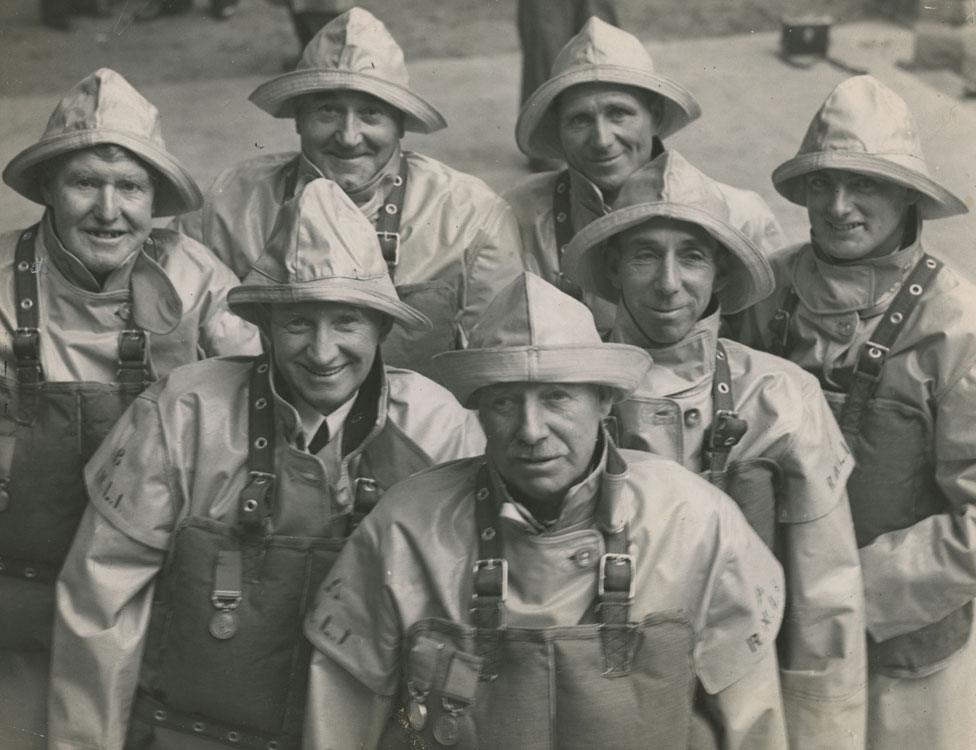
This picture of recipients of RNLI gallantry medals in 1946 was one of those rescued
A forgotten cache of 13,000 Royal National Lifeboat Institution (RNLI) pictures has been rediscovered in an attic and is being "preserved for posterity".
The photos were found earlier this year in a large dusty pile in the organisation's headquarters in Poole, Dorset.
Work has been started to preserve the pictures, the earliest of which are from the 1920s, and digitise the whole collection.
Joe Williams, of the RNLI, said: "We are bringing the pictures back into the light."
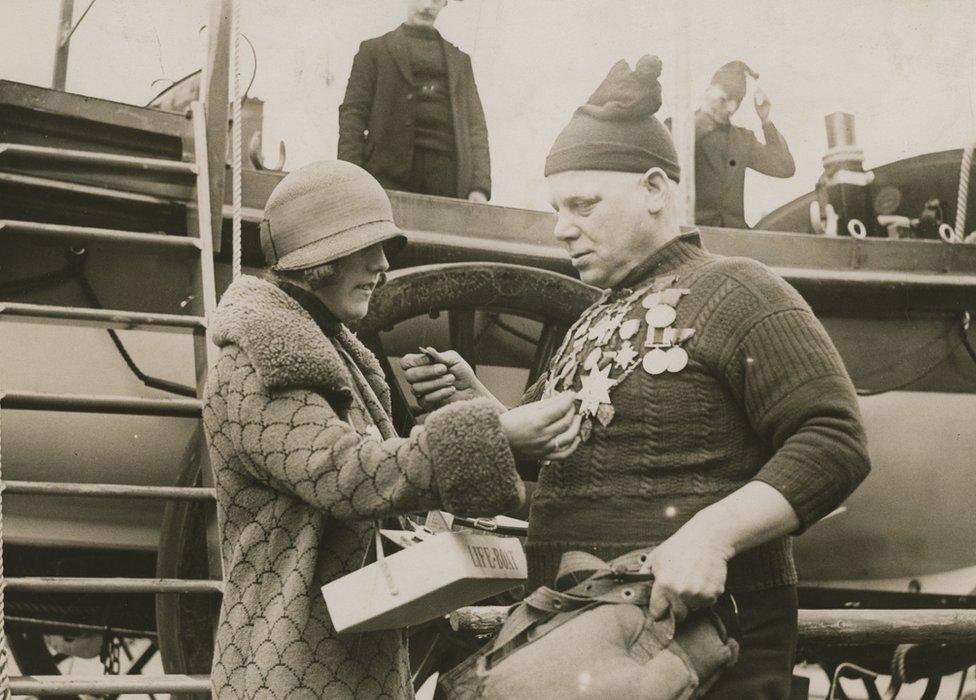
Pinning a badge on to a highly decorated crew member, 1925
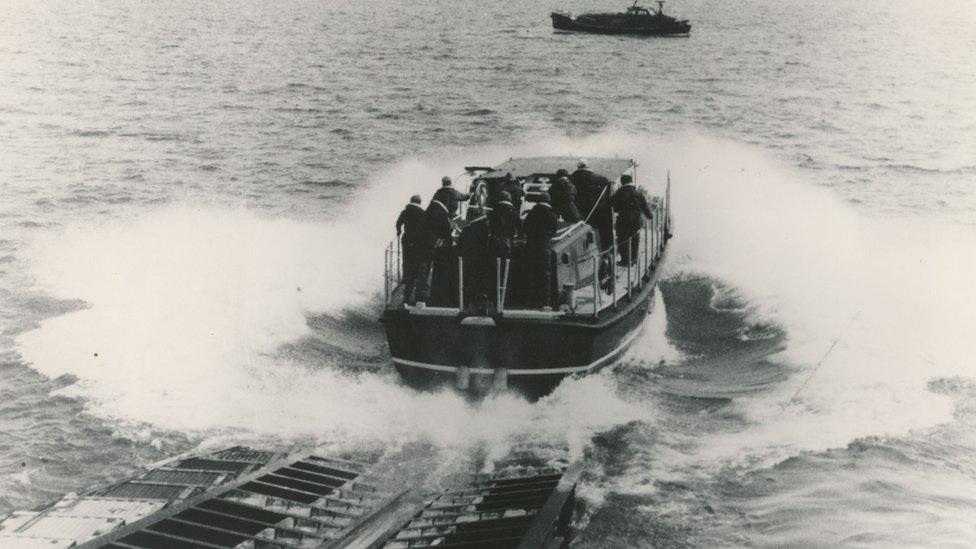
Slipway launch of a Tyne class lifeboat, the class was introduced in 1982
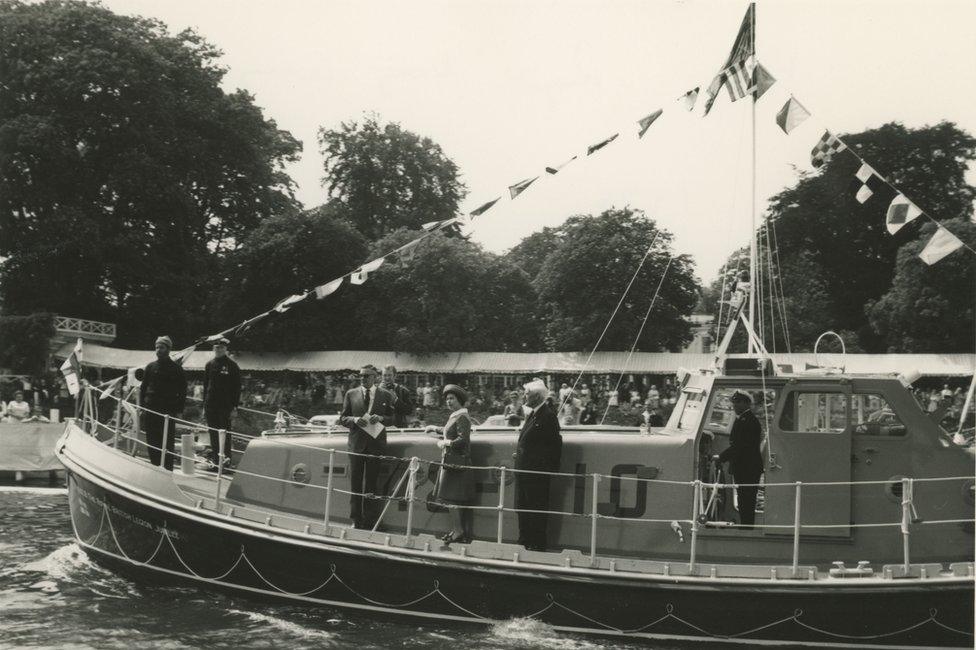
The Queen after the naming of The Royal British Legion Jubilee lifeboat
Mr Williams, who is a project officer and archivist, said: "It was an untapped resource and now we have preserved it for posterity."
It is hoped the conservation project will be finished early next year.
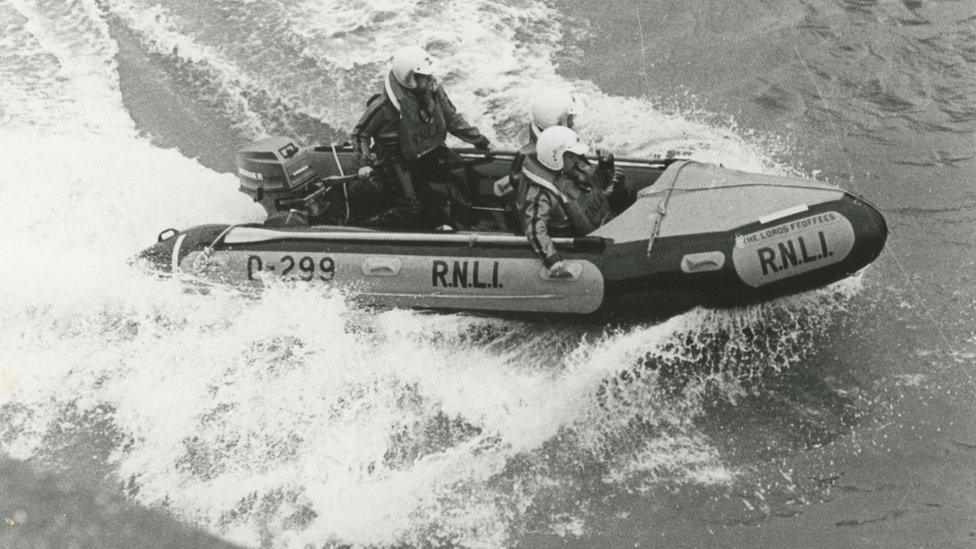
Bridlington’s inshore lifeboat The Lord Feoffees, in service 1984-1992
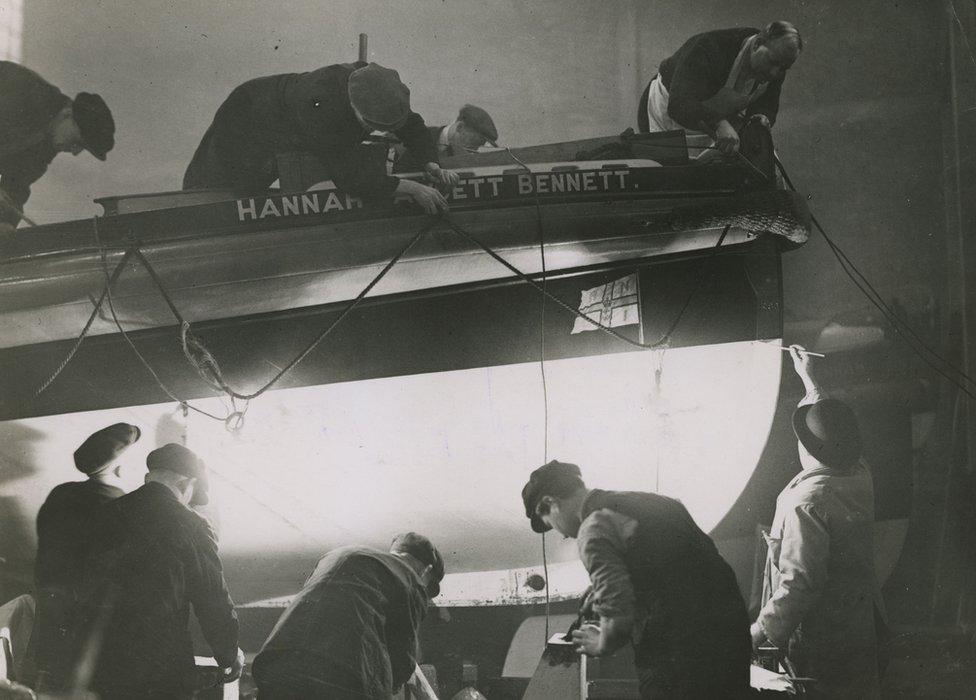
At work on Hoylake lifeboat Hannah Fawcett Bennett, RNLI’s Poplar depot, December 1935
Mr Williams said no-one was aware the collection had been left in unsuitable conditions.
"We had to bring it down from the attic to discover what was up there.
"It was a big mound of box files and photos being kept in very poor conditions near a lift mechanism," he said.
It is a record of the charity's activities including royal visits, lifeboat-naming ceremonies and launches.
Some of the standout pictures show the presentation of gallantry medals to crews.
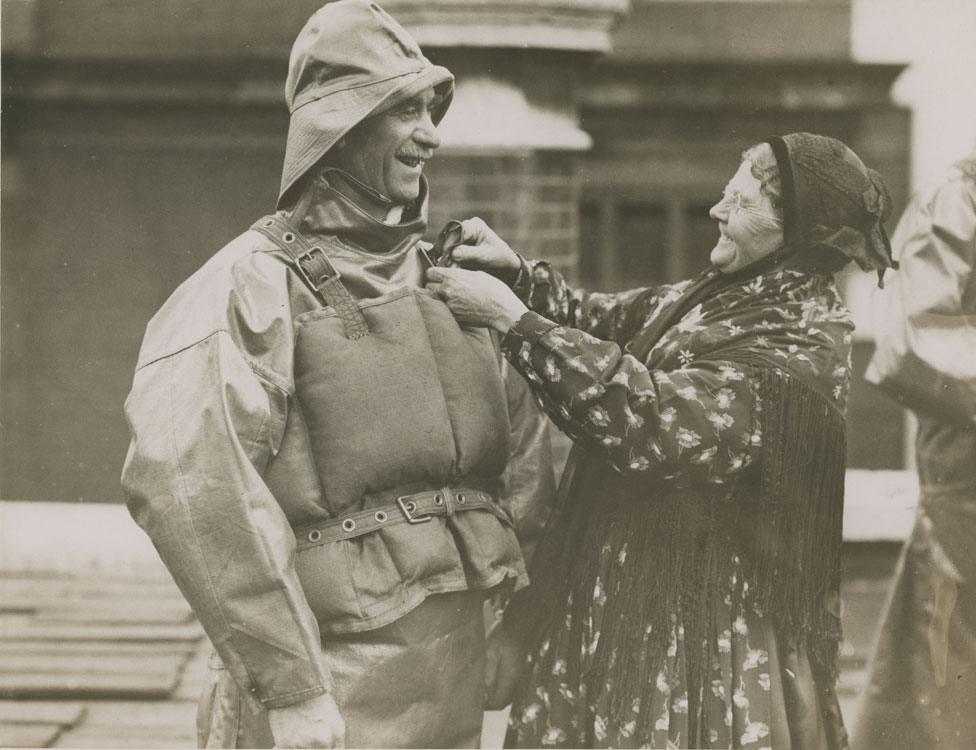
Robert Hood, Hartlepool coxswain, has his lifejacket strap adjusted
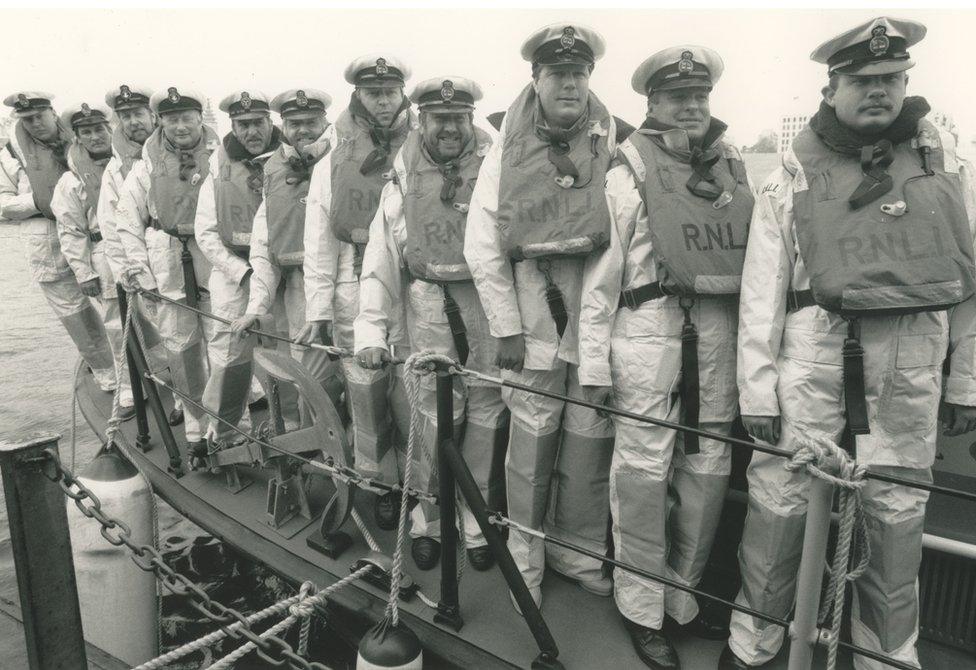
A line of RNLI Gallantry medallists in 1988
An RNLI team working alongside a number of Bournemouth University students has conserved and catalogued the pictures and many have been digitised.
The team now intends to research some of the rescue stories behind the medal presentations.
Some of the pictures will be used in care home reminiscence sessions and others are to be colourised, said Mr Williams.
"It has been a very enjoyable thing to do and very satisfying on a professional level," he added.
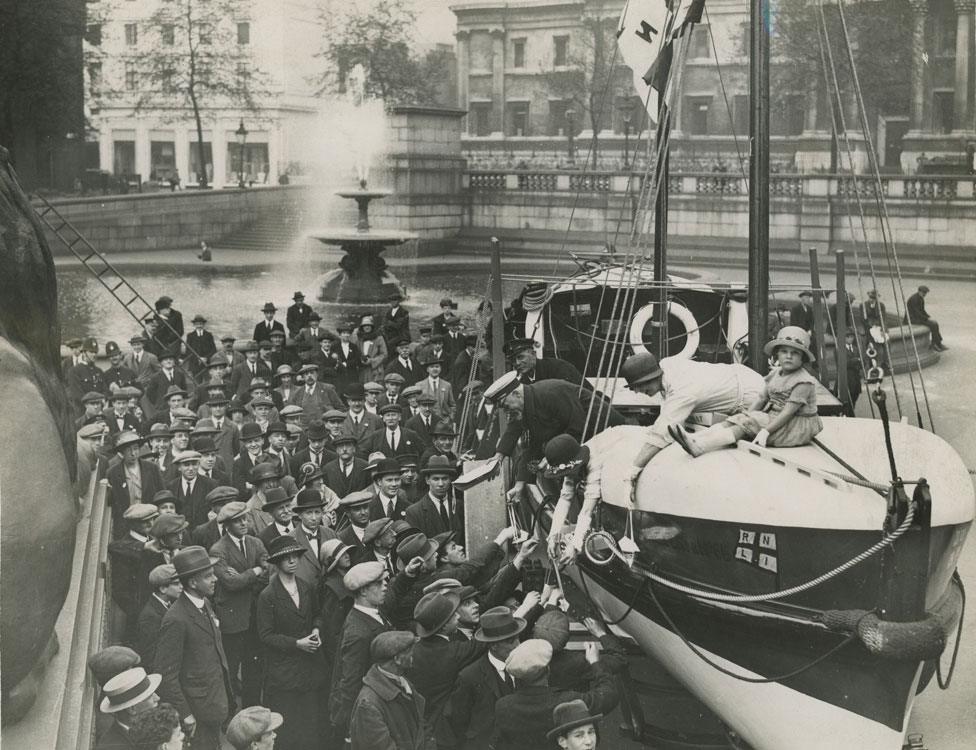
Lifeboat Day Centenary raising money in Trafalgar Square, London, 1924
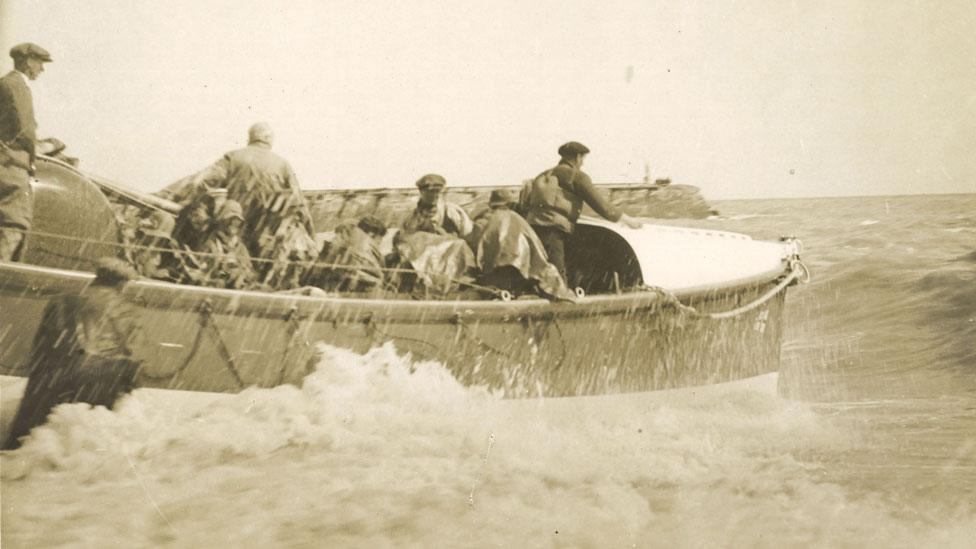
Launch of the Hastings lifeboat named Cyril and Lilian Bishop
Dave Riley, 40, the Helm of Poole lifeboat, said: "When I look at old pictures, especially those men in old cork life jackets, I think if someone said 'Go to sea with that' I would have to think twice.
"Back then they were very brave. Yes, I go out in very rough seas but we have a better chance of coming home."
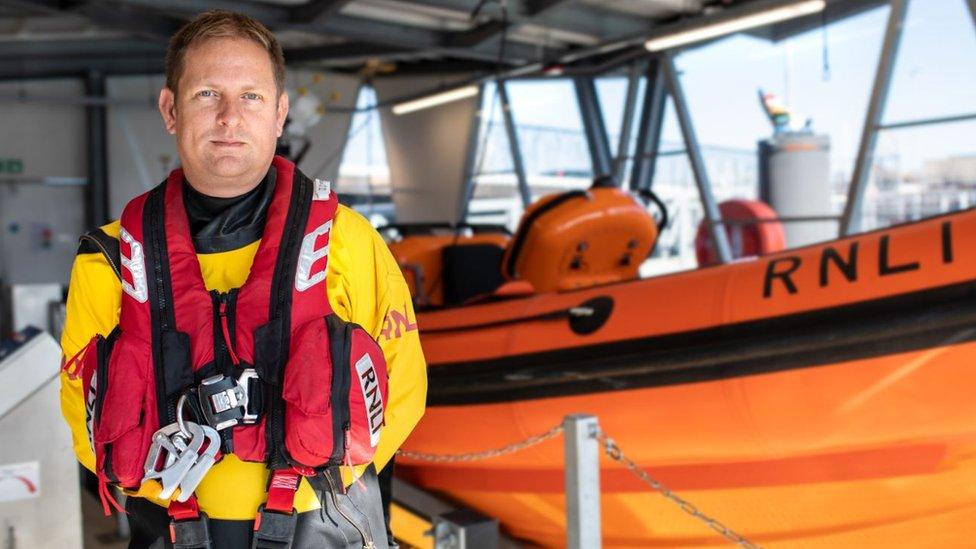
Dave Riley said: "History is really important to the RNLI and every station is proud of our heritage"
Mr Riley started as lifeboat crew when he was 17 and has also worked full time for the charity for the past 15 years.
"It's been said we are ordinary people doing extraordinary things but you don't think about it in black and white, you just do what you do."

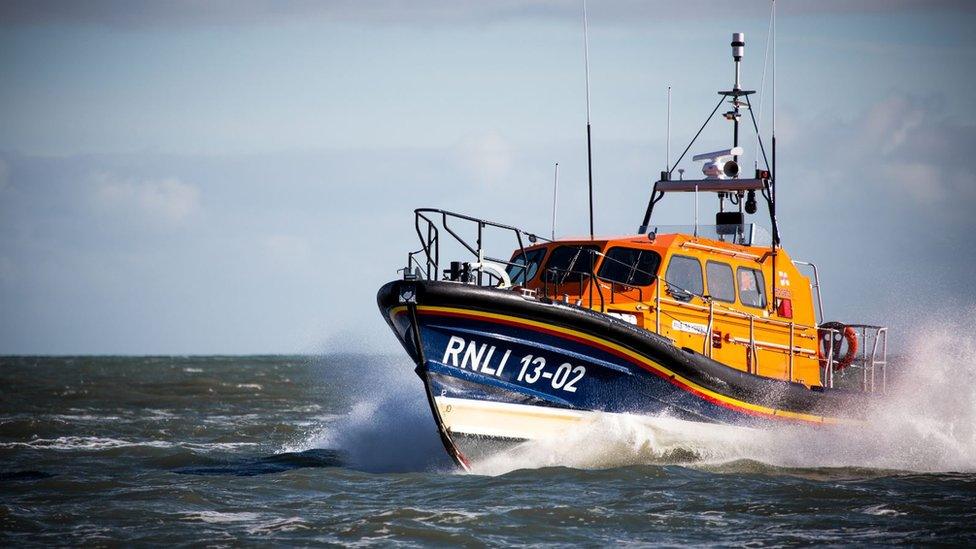
The story of the RNLI saving lives at sea
The charity's philosophy is to provide a lifesaving service using volunteers wherever possible.
1824 - Sir William Hillary's idea of a service dedicated to saving lives at sea begins
1838 - Grace Darling became a national heroine risking her life to save stranded survivors of the Forfarshire
1880 - The Zetland, built in 1802, was retired. The oldest surviving lifeboat in the world saved more than 500 lives and has been preserved at Redcar, North Yorkshire
1905 - First motor lifeboat entered service at Tynemouth
1936 - Last horse-powered launch
1940 - Two lifeboats join the fleet of little ships rescuing soldiers from the beach at Dunkirk during World War Two
1969 - Elizabeth Hostvedt became first trained female RNLI crew member
2002 - A hovercraft joins the RNLI fleet.
Source RNLI, external

- Published28 September 2019
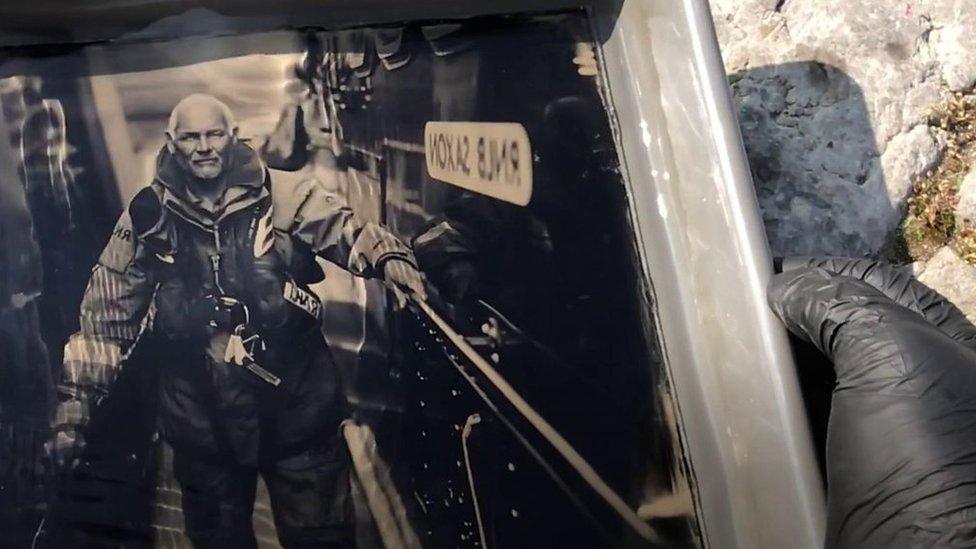
- Published10 September 2019
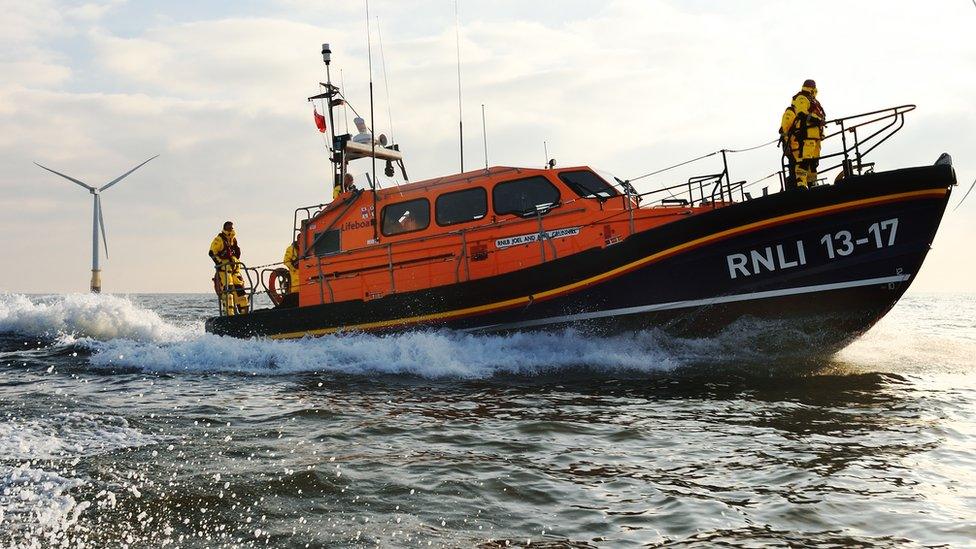
- Published10 July 2015
